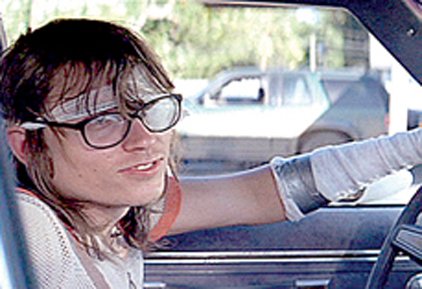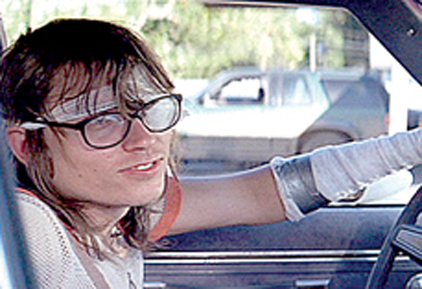LITTLE ROCK — It is unusual to discover something so fine so close to home. Initial instinct is to ration the praise we mete out to the filmmakers responsible. You don't want to look like a homer - the hyperbole of a hometown newspaper will do nothing to help and could be detrimental to the career of a young artist. But the power of Shotgun Stories demands acknowledgment. Differentpeople receive movies in different ways, but it would be dishonest to pretend this film shows "evidence of promise" or that it works well "given its inherent limitations."
Jeff Nichols' Shotgun Stories is a great movie.
Movie
Shotgun Stories
Grade: 92; Rating: PG-13 A feud erupts between two sets of southeast Arkansas half brothers after the death of their father. Directed by Jeff Nichols.
There's noneed to qualify that statement - to say it's great considering its relatively small-budget, or the fact it was filmed locally without movie stars. We don't need to grant it any dispensations. There are a lot of very good movies this year, and Shotgun Stories is in the top tier of them, a cut above many obvious awards contenders. It mightbe the most affecting, a simple human story with the archetypal power of Greek myth. It feels like an American classic.
There is a plain-spoken poetry in this tale of thwarted workingclass souls beset by the intractable problems of blood and grievance. Nichols and cinematographer Adam Stone give us a lush and goldstained small-town South (most of Shotgun Stories was shot in and around England, with some forays into North Little Rock) that's beautiful in the offhand, sometimes grotesque style of photographer William Eggleston. Much of the film seems to occur with the sun low in the sky, slanting through dusty windows and glittering on shallow lakes.
The plot concerns two sets of brothers who share a common father. Old Man Hayes ran out on his first family, leaving three sons now in their 20s and 30s. They are called Son (Michael Shannon), Kid (Barlow Jacobs) and Boy (Douglas Ligon), as though their parents could never quite screw it together to give them proper names. After Hayes left and got religion and became a pillar of the community with a prosperous farm and four new sons, the original offspring's embittered mother Nicole (veteran local Natalie Canerday) encouraged them to feel enmity toward their father's new family.
Son, Kid and Boy show up uninvited at their father's funeral, where Son delivers a sour eulogy and nearly touches off a brawl by spitting on the coffin. This insultdraws both sets of brothers into a blood feud.
Canerday may be the most recognizable face in the cast to local folks, though Shannon - who had memorable roles in Oliver Stone's World Trade Center, Sidney Lumet's Before the Devil Knows You're Dead and psychological horror film Bug - would be the closest the movie has to a star. He brings a resigned, taciturn sullenness to Son, a sense that he intends to honor his responsibilities even though he's intelligent enough to understand the inevitable unhappy consequences.
All the performances are so well-calibrated as to seem beyond any performance - the film is flawlessly cast and the actors,however experienced they may be, seem completely artless. As soft and sensitive Boy, Ligon is a particular standout, a sweet but weak guy who finds his bliss in his dog Henry and in teaching little kids basketball. If films like this had a chance in the awards arena, he'd be on the short list for Best Supporting Actor.
While the movie's dialogue is so spare that it might be easily parodied, it feels real to people who've lived in and observed the rhythms of small towns. Nichols knows the cadence of sun-oppressed summer afternoons and manual labor. He captures the offbeat details of smart people who realize they're hicks and are able to make self-referential jokes that no one needs to laugh at.
There's an extremely moving and wise line of dialogue in the film - one brother says to another that there comes a point when "you just have to decide you're going to love someone, and love them. That's all there is to it."
That's true. Look hard enough, you discover flaws and imperfections, things that you might not have ordered up from the shop. But that doesn't matter. Something comes close, you have to open up your heart. I've decided to love Shotgun Stories.
MovieStyle, Pages 39, 44 on 12/14/2007

